
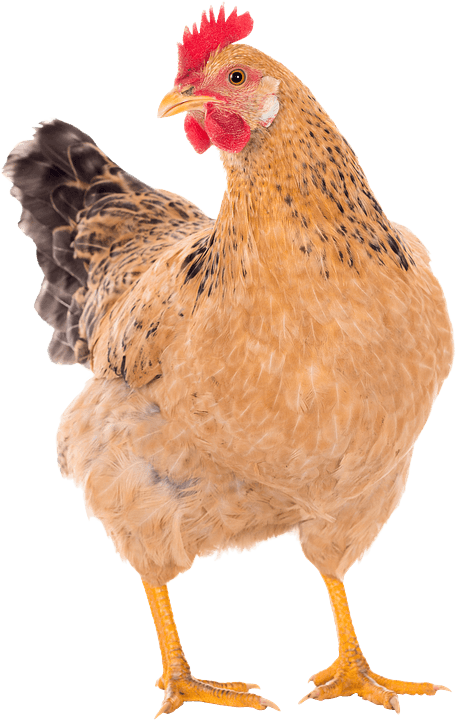
VETERINARY PRODUCT «ARIVIR»
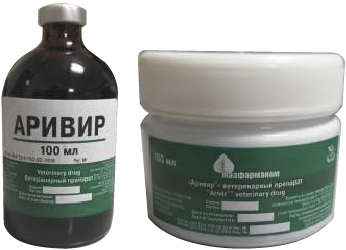
«Arivir» is intended for the treatment and prevention of bacterial, viral and bacterial-viral diseases.
LLC Organization — owner of the trademark «ARIVIR»: «Ave Alliance» LLC, Fuchiki str. 27/48, Yerevan, Armenia
Description
The new anti-infectious drug “Arivir” belongs to the class of biologically active compounds synthesized by a chemical method. Developed on the basis of modern scientific achievements, the latest technologies and nanotechnologies, the drug incorporates antiviral, antibacterial and immunomodulatory effects. "Arivir" is intended for the treatment and prevention of bacterial, viral and bacterial-viral diseases.
Target animal species:
Large and small cattle, camels, horses, pigs, rabbits, dogs, cats, poultry. The drug is prescribed for the prevention and treatment of infectious diseases and has no species restrictions.
Methods of introduction: intramuscularly, intravenously, subcutaneously, orally and externally, depending on the nature and type of the disease.
Indications: infectious diseases of bacterial nature - salmonellosis, colibacteriosis, streptococcosis, enterococcosis, bronchopneumonia, pleuropneumonia and pneumonia, diarrhea, pasteurellosis, diplococcosis, brucellosis, anaerobic dysentery, tuberculosis, listeriosis, streptoderma, gastroenteritis, opportunistic bacterial infection in viral diseases; diseases of viral etiology - distemper, influenza, rotavirus and coronavirus infections, parainfluenza, viral hepatitis, myocarditis, myxomatosis, circovirus-associated pig disease (Postweaning Multisystemic Wasting Syndrome), viral diarrhea, viral bronchopneumonia rhinotracheitis infectiosa bovum, infectious laryngotracheitls, variola, foot-and-mouth disease, cattle nodular dermatitis, ecthyma, plague, Aujeszky's disease, Newcastle disease; Mixed viral and bacterial infections, porcine reproductive and respiratory syndrome, post-weaning multisystem reproductive syndrome of exhaustion of pigs, nephropathic syndrome of pigs, etc .; “Arivir” is prescribed both to young animals from the first days of life and to mature species. The drug is recommended for use during pregnancy and breastfeeding of young animals with breast milk in order to increase resistance to infectious diseases.
Exposure to the drug leads to a significant decrease in the resistance of microorganisms to antibiotics, in particular to cephalosporins, aminoglycosides, fluoroquinolones, sulfanilamides and tetracycline-type antibiotics.
At this, the joint use of the drug with antibiotics of these groups leads to an increase in bacteriostatic and bactericidal effects;
"Arivir" increases the viability of young animals, the body's resistance to various infections. It is used for the prevention and treatment of immunodeficiencies and mineral balance disorders;
Arivir stimulates the growth and reproduction of farm animals and birds.
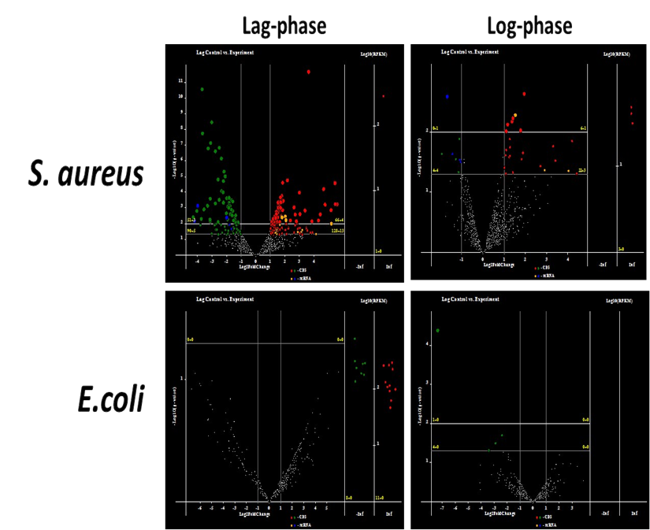
MECHANISM OF «ARIVIR» ACTION - SHORT-TERM INFLUENCE ON BACTERIA
Conjunction of the direct action of «Arivir» on gene expression is the following: activation of oxidative stress genes; suppression of processes consuming NADH; suppression of SOS-response genes indicates to absence of increase in DNA fragmentation.
ANTIBACTERIAL ACTION OF THE “ARIVIR” IN VITRO DRUG ON GRAM-POSITIVE MICRO-ORGANISMS
ADVANTAGES OF USE
ANTIVIRAL ACTIVITY OF “ARIVIR” IN VITRO DRUG
In experiments on cell cultures, the antiviral effect of the test drug «Arivir» in relation to the viruses of influenza, parainfluenza, poliomyelitis, Newcastle disease, avian influenza was studied. Cell cultures were infected with viruses. The culture cells died (picture 1, white zones); in the experiment, the drug was added to the agar overlay medium in various concentrations – from 1:10 to 1:100. After the virus death in the experiment, the cells of the cell cultures themselves retained their viability (picture 2).

Picture 1

Picture 2. Cell cultures after treatment with «Arivir». The drug was added to the agar overlay medium (1:80)
ANITIVIRAL ACTION OF “ARIVIR” IN VIVO
Chickens at the age of 30 days in the amount of 36 species. Virus - avian influenza virus A (A/FPV, H7N7), Weybridge strain. Method of infection is intranasal. Method of use of the drug is oral.
The test drug is Arivir. For the positive control remantadine is used. For the negative control water is used.
The effectiveness of antiviral action: anti-infective drug - 95%, Remantadine - 30%.
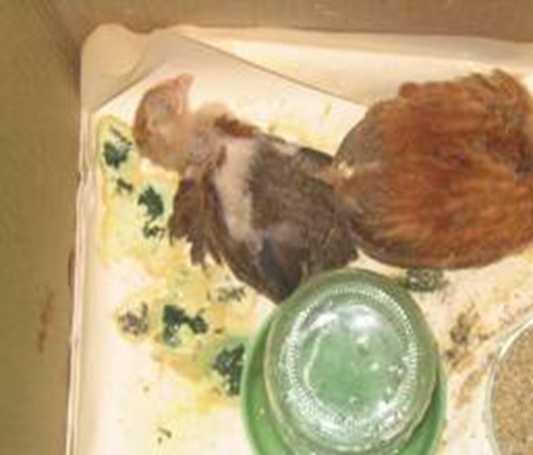
Before treatment
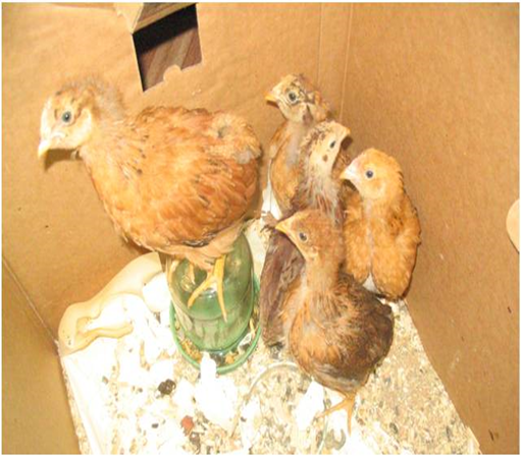
7 days after tretment

